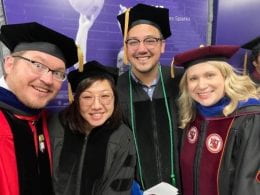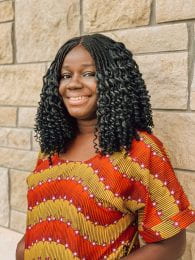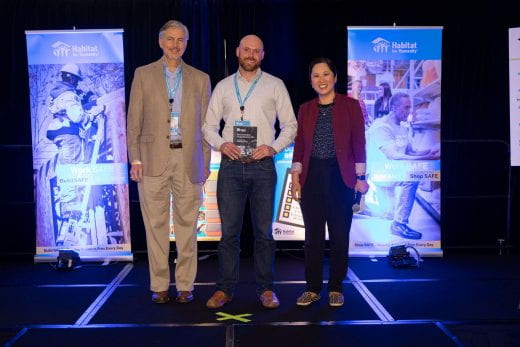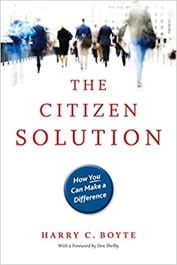
In this series, authors will share examples of teaching and learning practices for leadership development. In this essay, author Ania Payne describes how applying a leadership as practice lens to work in the classroom can help students learn how to be more successful at group projects and community engagement.
When the students in my Technical Writing class start the final project of the semester, they usually bemoan “the dreaded group project,” complaining that it’s impossible to have a group without “social loafers.” They assure me that as much as I might try to enforce an equal distribution of the workload, inevitably 1-2 people end up bearing most of the load of this 3-4 person group project.
Students often start group projects by identifying their competencies: one student might be more artistic and confident with design software; another student might identify as a “strong writer,” and another might decide that they are a skilled project manager or team leader. However, not all students see themselves filing these narrow roles, which leads to those students starting the project with lower confidence, unsure about how they fit into the group dynamics and less willing to speak their voices or take on significant roles. Students are often taught that identifying competencies is the best way to approach group projects; however, competency thinking does not transpose context, such as from one class to another, therefore it tends to represent individuals acting independently and “performing in isolation to others and context” rather than “being cognizant and compensatory with where one is stronger and weaker” (Carroll et al., 2008, p. 365). Continue reading “Leaderful learning through group projects” →


 Chibuzor Azubuike, Kansas State University Leadership Communication doctoral student and Staley School of Leadership Studies graduate teaching assistant, presented research at four virtual multidisciplinary conferences during the spring 2022 semester.
Chibuzor Azubuike, Kansas State University Leadership Communication doctoral student and Staley School of Leadership Studies graduate teaching assistant, presented research at four virtual multidisciplinary conferences during the spring 2022 semester. 



 Engaged scholarship has been defined in several ways. These definitions also lead to some distinct motivations as well. Although these definitions and motivations may vary as they come from different fields, it seems they have commonalities in their goals that is social transformation. In social transformation, ideas and concepts are not objects of study but constructed by human’s relationships (Allman, 1999). Hence, if the aim is to change the situation, this happens through the change of relationships.
Engaged scholarship has been defined in several ways. These definitions also lead to some distinct motivations as well. Although these definitions and motivations may vary as they come from different fields, it seems they have commonalities in their goals that is social transformation. In social transformation, ideas and concepts are not objects of study but constructed by human’s relationships (Allman, 1999). Hence, if the aim is to change the situation, this happens through the change of relationships.